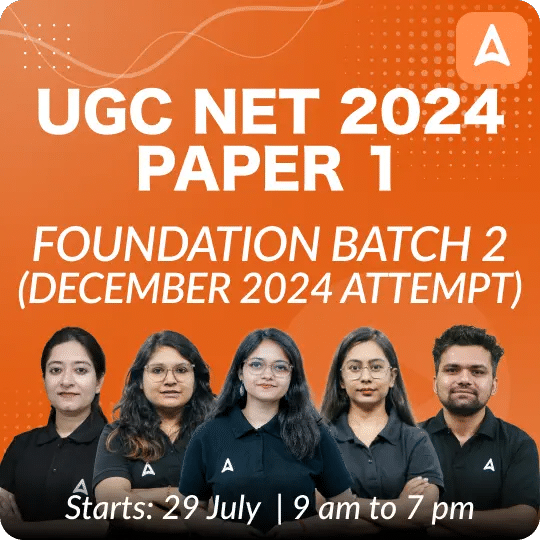
The Karnataka Examinations Authority in Karnataka has published the KSET Syllabus 2025 on its official website. The syllabus for Karnataka SET 2025 includes Paper 1 and Paper 2. Before beginning their preparation for the Karnataka SET exam, candidates are advised to understand the exam pattern and thoroughly review the detailed syllabus by topic. This approach ensures comprehensive preparation and increases the chances of success in the examination.
KSET Syllabus 2025
The KSET Syllabus for 2025 is structured into two papers. The first paper, known as KSET Syllabus 2025 Paper 1, encompasses a broad spectrum of subjects such as Teaching Aptitude, Research Aptitude, Communication, Reasoning, Mathematical Aptitude, People and Environment, and Higher Education System.
KSET Exam is universal for all candidates, offering a complete overview of important topics like teaching and research aptitude, communication, reasoning, mathematical aptitude, people and environment, as well as the higher education system. On the other hand, KSET Syllabus 2025 Paper 2 is tailored to the candidate’s chosen subject, ensuring a specialized focus on the subject-specific content.
Karnataka SET Syllabus 2025: Overview
Candidates who are looking for the Karnataka SET Exam Syllabus & Exam Pattern have come to the perfect place. The K SET Paper 1 and Paper 2 Syllabus is available on this official website. Here, we’ll provide all the information you need to go through for Karnataka SET Exam 2025.
| Karnataka SET Exam 2025 | |
|---|---|
| Exam Name | Karnataka State Eligibility Test |
| Exam Body | Karnataka Examinations Authority, Karnataka |
| Held for | Eligibility of Assistant Professor |
| Location | Karnataka |
| KSET Total Questions | 150 |
| KSET Total Marks | 300 |
| Official Website | http://kea.kar.nic.in/index1.asp |
Karnataka SET Syllabus
Candidates must be thoroughly prepared for the extensive KSET Syllabus to be eligible for the Karnataka SET Exam. K SET Paper 1 lasts for one hour and carries a total score of 100. Karnataka SET Paper 2 has 200 marks questions and lasts two hours for 41 subjects. As candidate should have start their preparation, K SET Subject for their concerned subject topic wise has been available in below table for exam preparation.
The Karnataka State Eligibility Test (KSET) is an essential exam for aspiring lecturers in Karnataka. A thorough understanding of the syllabus is essential for effective preparation. The KSET syllabus is generally divided into two papers:
- Paper I: This is a general paper, common for all candidates, testing teaching and research aptitude, reasoning, comprehension, and general awareness.
- Paper II: This is subject-specific, based on the candidate’s chosen subject.
KSET Exam Pattern 2025
The KSET 2025 exam includes questions of the objective-type multiple-choice format. Karnataka SET exam has two papers i.e. Paper 1 is important for all applicants and Paper 2 is however subject-specific. The KSET Syllabus is vast, thus preparation for the test must begin early.
Some significant subtopics are also covered in the syllabus for effective exam preparation. The KSET Syllabus presented here will help you identify the important components of each course and create a productive study schedule.
| KSET Exam Pattern | |||
| Section | Questions | Marks | Duration |
| Paper 1 | 50 | 100 | 3 Hours |
| Paper II | 100 | 200 | |
KSET Paper 1 Syllabus
KSET Paper 1 will have 50 objective-type questions, which has a maximum score of 100 carrying 2 mark for each question. According to the detailed KSET Subject-Wise syllabus below, Paper 1 has been divided into 10 sections. 5 Questions from each area make up an equal amount of each section. The table below contains the KSET Syllabus for Paper 1 for candidates to review.
The KSET Syllabus 2025 for Paper 1 aims to evaluate candidates’ Teaching and Research Aptitude, Reasoning Ability, Comprehension, Divergent Thinking, and General Awareness of their subject area. This syllabus applies universally to all candidates and covers essential domains such as Teaching Aptitude, Research Aptitude, Reading Comprehension, Communication, Logical Reasoning, Data Interpretation, Information and Communication Technology (ICT), Environment and People, and Governance, Polity, and Administration in Higher Education System. Below is a detailed breakdown of the syllabus for these topics included in the KSET Paper 1 Exam.
| Section | Topic wise Syllabus |
| Teaching Aptitude |
|
| Research Aptitude |
|
| Reading Comprehension | A passage of the story will be set along with questions that need to be answered from within the paragraph. |
| Communication |
|
| Reasoning (including Maths) |
|
| Logical Reasoning |
|
| Data Interpretation |
|
| Information & Communication Technology (ICT) |
|
| People & Environment |
|
| Higher Education System: Governance, Polity & Administration |
|
KSET Paper 2 Syllabus
The KSET exam’s Paper II will cover the subject that the candidate selects. The candidate may choose from any of the 41 topics. The Karnataka SET exam will consist of 100 questions, each worth two marks. Every question will be required.
The University of Mysore’s official website has the KSET Syllabus for Paper II available for candidates to download. Below is a link to the KSET Syllabus PDF for Paper II for candidates to review.
| Code | Subject | Link |
| 00 | General Paper | Download |
| 01 | Commerce | Download |
| 02 | Kannada | Download |
| 03 | Economics | Download |
| 04 | English | Download |
| 05 | Political Science | Download |
| 06 | History | Download |
| 07 | Sociology | Download |
| 08 | Geography | Download |
| 09 | Hindi | Download |
| 10 | Management | Download |
| 11 | Tourism Administration | Download |
| 12 | Education | Download |
| 13 | Library & Information Science | Download |
| 14 | Mass Communication & Journalism | Download |
| 15 | Psychology | Download |
| 16 | Social Work | Download |
| 17 | Criminology | Download |
| 18 | Law | Download |
| 19 | Sanskrit | Download |
| 20 | Physical Education | Download |
| 21 | Folk Literature | Download |
| 22 | Urdu | Download |
| 23 | Public Administration | Download |
| 24 | Computer Science & Applications | Download |
| 25 | Physical Science | Download |
| 26 | Mathematical Science * | Download |
| 27 | Chemical Science | Download |
| 28 | Life Science | Download |
| 29 | Environmental Science | Download |
| 30 | Home Science | Download |
| 31 | Electronic Science | Download |
| 32 | Earth Science | Download |
| 33 | Archaeology | Download |
| 34 | Anthropology | Download |
| 35 | Marathi | Download |
| 36 | Philosophy | Download |
| 37 | Women Studies | Download |
| 38 | Linguistics | Download |
| 39 | Performing Arts | Download |
| 40 | Music | Download |
| 41 | Visual Arts | Download |
Karnataka SET Qualifying Marks
The Karnataka State Eligibility Test (KSET) is conducted to determine the eligibility of candidates for lectureship and assistant professorship in Karnataka’s colleges and universities. The qualifying marks for K SET category wise for Paper 1 and 2 has been mentioned in below table.
- For General Category Candidates: Candidates belonging to the General category needed to secure at least 40% aggregate marks in the K SET exam.
- For Reserved Category Candidates: Candidates from the reserved categories i.e. SC/ST/OBC /PWD needed to secure at least 35% aggregate marks to qualify for K SET.
KSET Exam Pattern 2025
KSET 2025 will be conducted in two stages, with the first stage being a written examination administered by the University of Mysore. This examination will consist of two papers and will be conducted in offline mode. For details regarding the exam pattern, please refer below.
| Paper | Subject | Number of Questions | Maximum Marks |
|---|---|---|---|
| I | Teaching & Research Aptitude | 50 | 100 |
| II | Concerned Subject | 100 | 200 |
| Total | – | 150 | 300 |
















